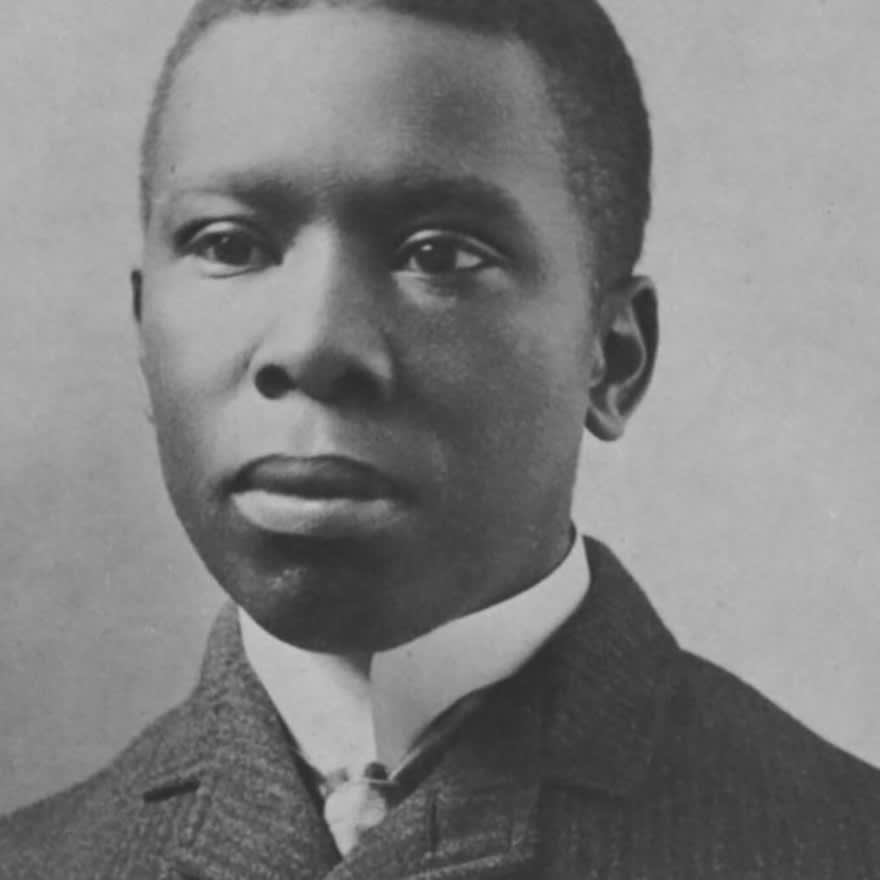
From: Dayton, Ohio. LA Opera: His poetry is featured in the Digital Shorts Death (2021) and We Hold These Truths (2022).
Paul Laurence Dunbar was born in Dayton, Ohio, on June 27, 1872, the son of two former slaves. His short and miraculous life ended at age 33, after a painful battle with tuberculosis.
In that time, he wrote a dozen books of poetry, four collections of short stories, five novels, and a play, providing both a history and a celebration of Black life at the turn of the century. But it was “dialect” poems—employing the form and cadence of Black speech—that made him famous and when placed alongside his works of "literary” English, suggested the duality of the Black experience.
As the nation's preeminent Black poet, Dunbar was part of the first generation of African Americans to grow up after Emancipation and corresponded regularly with W.E.B. Du Bois, Booker T. Washington and Frederick Douglass, who described him as “the most promising young colored man in America.” He traveled the world, attending both of President Theodore Roosevelt's inaugurations and Queen Victoria's Diamond Jubilee, but to his frustration, Dunbar struggled to be recognized as a writer belonging to the same tradition as John Keats and William Shakespeare and rejected his own manner of speech.
Decades later, his work would inspire a new generation of Black writers, most notably, Langston Hughes and Maya Angelou, who borrowed a line from Dunbar’s poem "Sympathy" for the title of her autobiography, I Know Why the Caged Bird Sings.
As Dunbar lay dying in his study on February 9, 1906, he read the 23rd Psalm aloud to his mother. His final words were “Yea, though I walk through the valley of the shadow of death.”



